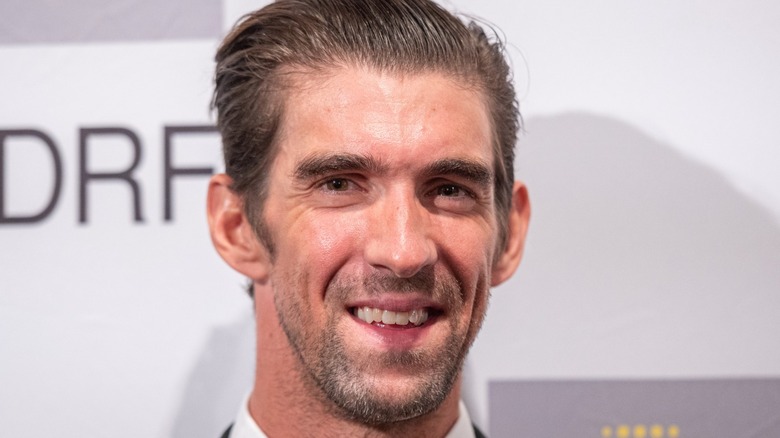Inside Michael Phelps' Experience With Depression
As National Mental Health Month approaches, mental health issues such as anxiety and depression will move into the spotlight. According to Youth.gov, National Mental Health Month was established in 1949 as a way for Americans to be more aware of mental health issues and treatments and services and to celebrate those who have experienced mental health recovery.
One mental health issue in particular, depression, is the leading cause of disability across the globe, according to the Anxiety & Depression Association of America. The experts at Healthline explain that depression is more than simply feeling sad or blue for only a few days. Health experts describe major depressive disorder or clinical depression as experiencing sadness, grief, or hopelessness for two weeks or longer.
Besides clinical depression, there are other types of depression, such as persistent depressive disorder, a chronic condition characterized by mild symptoms of sadness that last two or more years. People diagnosed with bipolar disorder may also experience symptoms of depression. And some people may experience seasonal depression, which is clinical depression that is triggered based on seasonal changes. Thankfully, depression has become less of a stigma as more high-profile people openly discuss their own struggles with the illness.
How Michael Phleps copes with depression
One of the world's most prominent figures who has opened up about his battles with depression is the most-decorated Olympian of all time, swimmer Michael Phelps. Phelps' struggles began well before he retired from swimming in 2016, but when he hung up his swimming goggles, he felt he lost his identity, which led to more mental health struggles (via Insider). All he ever knew was being a career swimmer. He didn't know how to simply be a human being, Phelps told Insider.
Phelps is the spokesperson for the therapy app Talkspace. Besides therapy, Phelps has found other methods that help him cope on a regular basis that keep him from returning to a place of deep despair.
A habit that Phelps told Insider has been essential in supporting his mental health for over 20 years is maintaining regular exercise habits. He splits his week up between three days of weight training and three days of various cardio, such as a stationary bike or the elliptical. He allows himself to rest on Sunday if his hamstrings need a time-out. He also swims two or three times a month, usually when he hits low points, because the water helps to keep him calm. Phelps complements his physical activity with journaling and meditation. Especially during the worst part of the pandemic, when so much was out of his control, taking charge of what he could control, such as working out his body and clearing his mind, was key, Phelps said.


